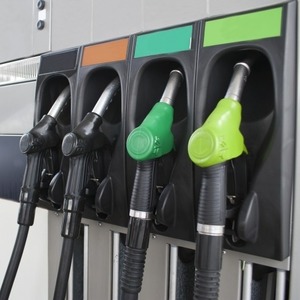Pennsylvania issues partial, temporary suspension of B2 mandate

June 22, 2022
BY Erin Krueger
The Pennsylvania Department of Agriculture on June 17 announced a partial and temporary suspension of the state’s 2 percent biodiesel mandate. The action aims to help fuel suppliers alleviate diesel shortages by making it easier to source diesel from surrounding states. In-state terminal facilities are still required to comply with the mandate and are encouraged to consider supplying higher biodiesel blends.
A PDA spokesperson said the action is a proactive measure that aims to help ensure fuel is available to keep the supply chain functioning during extraordinary circumstances. The suspension is effective June 27 through July 26, subject to certain terms and conditions.
The PDA announced the mandate suspension in a June 17 letter to Pennsylvania Gov. Tom Wolf. That letter notes that the PDA received a request to suspend the B2 mandate, which applies to diesel fuel sold for on-rode use. The request was made under a section of state statute that authorizes the PDA, in consultation with the Pennsylvania Department of Environmental Protection, to suspend or modify to reduce the mandate if the PDA determines that doing so is warranted by factors, including but not limited to, substantially increased costs to consumers or insufficient quantity or distribution of biodiesel.
Advertisement
Advertisement
“In consultation with DEP, PDA has reviewed the industry’s evaluation of the impact of ongoing market price volatility on the consumption and availability of diesel fuel in Pennsylvania,” the PDA wrote in the letter. “Because wholesalers are unable to forecast the ongoing diesel fuel needs for in-state customers, they have ceased carrying a surplus of diesel fuel. The extreme price fluctuation and limited inventory from wholesalers have caused low stock and rolling outages of diesel fuel throughout Pennsylvania. Based on this evaluation, PDA has determined, and DEP concurs, that it is necessary to take further action to minimize or prevent disruption of the supply of diesel fuel in Pennsylvania.”
The letter states that all in-state terminal facilities should continue to receive and blend diesel in compliance with the B2 mandate and all other provisions of the law that implemented that mandate. The letter also directs these facilities to consider higher blends within the acceptable OEM engine requirements and their customer’s ability to make such products available to consumers.
Advertisement
Advertisement
During the suspension period, the PDA said the sale of diesel for use in on-road compression ignition engines will not be subject to the B2 mandate. The agency said any retailer that took delivery of diesel fuel blended outside the Commonwealth of Pennsylvania and which is not compliant with the B2 mandate may sell such diesel fuel to consumers during the suspension period.
The letter also notes that any retailer that takes delivery of diesel fuel that is not compliant with the B2 mandate during the suspension period may sell the non-compliant diesel fuel already in its possession for use in on-road compression ignition engines. Any deliveries of diesel fuel to a retailer after the suspension period expires will be subject to the B2 mandate.
The Pennsylvania Motor Truck Association said the temporary waiver should help bring diesel prices back into line. A full copy of the PDA’s letter is available on the PMTA website.
Related Stories
CountryMark on July 22 celebrated the completion of more than $100 million in upgrades at its refinery in Indiana, including those related to soybean oil storage. The facility produces renewable diesel via coprocessing technology.
ATOBA Energy and Air Moana are partnering to implement scalable solutions for the supply of SAF. The collaboration aims to ensure long-term SAF availability while supporting local initiatives to develop sustainable fuel production in Tahiti.
While final IRS guidance is still pending, the foundation of the 45Z program is well defined. Clean fuel producers should no longer be waiting; they can now move forward with critical planning and preparation, according to EcoEngineers.
Neste Corp. on July 24 released second quarter results, reporting record quarterly renewable product sales volumes despite weaker margins. SAF sales were up nearly 80% when compared to the first quarter of 2025.
Valero Energy Corp. on July 24 released second quarter results, reporting a profitable three-month period for its ethanol segment. The renewable diesel segment posted a loss, but the company’s new sustainable aviation fuel (SAF) unit operated well.
Upcoming Events










